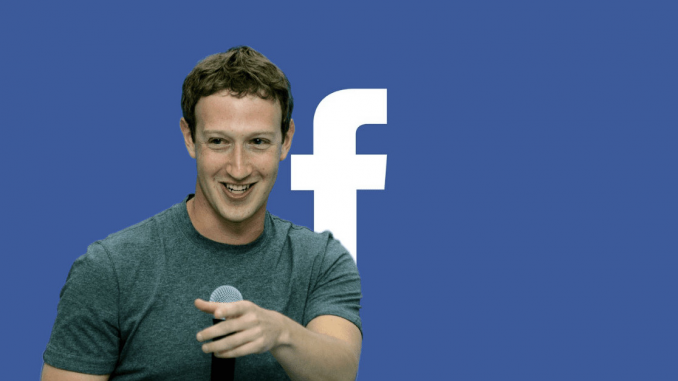
By Gideon Maxwell
July 31, 2025
Meta chief executive Mark Zuckerberg on Wednesday declared that the company is now actively working toward building artificial superintelligence, a form of AI that surpasses human capabilities in every regard, stating that early signs of this future are already emerging within the company’s systems.
Speaking during the company’s quarterly earnings briefing, Zuckerberg said, “We’ve begun to see glimpses of our AI systems improving themselves. The improvement is slow for now, but undeniable. Developing superintelligence, which we define as AI that surpasses human intelligence in every way, we think is now in sight.”
He said Meta’s goal is not only to achieve superintelligence but to make it personal and universally accessible, enabling individuals to direct it toward what matters most in their own lives. “Meta’s vision is to bring personal superintelligence to everyone, so that people can direct it towards what they value in their own lives,” he said.
Zuckerberg added that while many experts have discussed the economic and scientific promise of AI, he believes its most important impact will be cultural and human-centred. “If history is a guide, then an even more important role will be how superintelligence empowers people to be more creative, develop culture and communities, connect with each other, and lead more fulfilling lives,” he said.
To advance this goal, Zuckerberg announced the establishment of Meta Superintelligence Labs, which consolidates the company’s foundational AI efforts, including its FAIR (Fundamental AI Research) unit, product teams, and a new lab focused on developing the next generation of Meta’s AI models.
Zuckerberg also unveiled the leadership behind the superintelligence programme. Alexandr Wang is leading the overall effort, Nat Friedman is in charge of AI products and applied research, and Shengjia Zhao is serving as Chief Scientist. He described the trio as “incredibly talented leaders,” adding that Meta is assembling a “world-class group of AI researchers, and infrastructure and data engineers” to drive the initiative.
As part of the infrastructure buildout, Zuckerberg said Meta is investing heavily in computational capacity to support its superintelligence goals. He disclosed that Meta is developing several multi-gigawatt clusters, including the Prometheus cluster, set to come online next year and expected to be the world’s first 1GW+ AI cluster. The company is also building Hyperion, which will scale up to 5GW over the next several years. Additional large-scale clusters are also under development.
“The people who are joining us will have access to unparalleled compute,” he said. “We’re making all these investments because we have conviction that superintelligence is going to improve every aspect of what we do.”
While discussing Meta’s broader business performance, Zuckerberg noted that over 3.4 billion people now use at least one of Meta’s applications daily. He attributed the company’s strong earnings in part to advances in AI, particularly in advertising, user engagement, and content delivery. He said new AI-powered recommendation models have already driven a 5 percent increase in ad conversions on Instagram and 3 percent on Facebook.
Zuckerberg said generative AI is now being used to create ad content, with a growing share of Meta’s advertising revenue coming from campaigns using these features. He added that these tools are especially beneficial for smaller advertisers with limited resources, while agencies continue to find new ways to apply them strategically.
ALSO READ: Meta Platforms unveils Instagram monetization feature for Nigerian creators
He also pointed to AI’s role in improving the relevance of content served to users, which he said led to a 5 percent increase in time spent on Facebook and a 6 percent increase on Instagram during the quarter. He said Meta is beginning to see progress with its AI video editing tools and a new creative app, Edits, aimed at content creators.
On business communication, Zuckerberg reiterated his belief that AI agents will soon become standard tools for enterprises globally. He said Meta is already seeing product-market fit in countries where its AI business agents are being tested. These agents are being integrated into Facebook and Instagram ads, as well as e-commerce platforms.
Regarding Meta AI, Zuckerberg reported that the tool already has more than one billion monthly active users. He said Meta’s focus is on deepening the experience and positioning Meta AI as the leading personal AI system globally. “As we continue improving our models we see engagement grow,” he said.
He also spoke about Meta’s hardware efforts, particularly in AI-powered smart glasses. Zuckerberg said the company’s Ray-Ban Meta glasses continue to experience strong momentum and that new Oakley Meta HSTNs are being introduced with improved battery life and camera resolution. “I think that AI glasses are going to be the main way that we integrate superintelligence into our day-to-day lives,” he said.
In addition to its AI focus, Meta continues to expand its virtual and mixed reality ecosystem. Zuckerberg said usage of the Quest platform continues to grow, with the launch of Meta Quest 3S Xbox Edition drawing record interest in cloud gaming. He added that users are also spending more time on web browsing and media consumption through the headset.
Looking ahead, Zuckerberg said more updates on Meta’s AI and virtual reality work will be shared at the company’s annual Connect event scheduled for September 17. He concluded by thanking Meta’s workforce for its performance over the quarter and reaffirmed the company’s long-term focus.
“Strong business performance and real momentum in assembling both the talent and the compute that we need to build personal superintelligence for everyone,” he said. “I’m very grateful for our teams who are working hard to deliver this, and thanks to all of you for being on this journey with us.”




